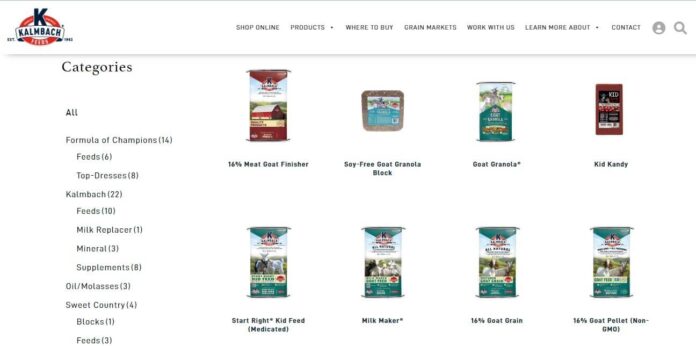Are you a goat owner looking to ensure the optimal health and well-being of your caprine companions? Look no further. This article will provide you with valuable insights on how to optimize the nutrition of your goats through appropriate feeding practices. Understanding the nutritional needs of goats is crucial to their overall health and performance. By selecting the right feed, balancing protein and energy, and providing essential vitamins and minerals, you can ensure your goats receive a well-rounded diet. Additionally, different life stages require specific feeding strategies to support growth, reproduction, and maintenance. Monitoring and adjusting feed accordingly is essential to maintain optimal health. With this comprehensive guide, you can become well-versed in the intricacies of goat nutrition and apply research-based knowledge to optimize the well-being of your caprine companions.
Understanding the Nutritional Needs of Goats
Understanding the nutritional needs of goats is crucial for ensuring their overall health and well-being. When it comes to goat feed, it is important to understand their nutrient requirements and evaluate suitable forage options. Goats are ruminant animals, which means they have a unique digestive system that allows them to efficiently break down and utilize fiber-rich feed. Their diet should consist of high-quality forage, such as grasses, legumes, and browse, which provide essential nutrients like carbohydrates, protein, vitamins, and minerals. Additionally, goats require a balanced diet that includes grains, concentrates, and supplements to meet their specific nutritional needs. It is vital to regularly evaluate the quality of forage options available to goats, as it directly impacts their health and productivity. By understanding their nutrient requirements and evaluating forage options, you can optimize the nutrition of your caprine companions, promoting their overall well-being.
Choosing the Right Feed for Your Goats
To ensure your goats are getting the best nourishment, it’s crucial to select the ideal diet for them. When it comes to choosing the right feed for your goats, there are a variety of goat feed brands available in the market. It is important to choose a reputable brand that provides high-quality, nutritionally balanced feed specifically formulated for goats. Look for brands that have a good reputation and positive reviews from other goat owners. Additionally, hay is an essential component of a goat’s diet. There are different types of hay to consider, such as alfalfa, timothy, and Bermuda grass hay. Each type of hay has its own nutritional profile, so it’s important to choose the one that best meets your goats’ dietary needs. Consult with a veterinarian or livestock nutritionist to determine the most appropriate feed and hay for your goats.
Balancing Protein and Energy in Goat Diets
Finding the perfect balance between protein and energy is crucial when creating a well-rounded diet for your furry friends. Goats have specific protein requirements that need to be met in order to support their growth, reproduction, and overall health. It is important to provide them with high-quality protein sources such as alfalfa hay, soybean meal, or dried distillers grains. These sources are rich in essential amino acids that goats need for optimal body function. In addition to protein, goats also require energy to meet their daily needs. Energy sources like grains, corn, or barley can provide the necessary calories for goats to maintain their energy levels and support their daily activities. Balancing protein and energy in goat diets ensures that they receive the nutrients they need to thrive and stay healthy.
Providing Essential Vitamins and Minerals
Ensuring a well-rounded diet for your furry friends means providing them with essential vitamins and minerals to support their overall health and wellbeing. When it comes to goat nutrition, fortifying their feed with these vital nutrients is crucial. Goats require a variety of vitamins and minerals to maintain optimal health and prevent deficiencies. Some key vitamins for goats include vitamin A, vitamin D, vitamin E, and the B vitamins. These vitamins play essential roles in various bodily functions, such as immune system function, bone development, and energy metabolism. In addition to vitamins, minerals like calcium, phosphorus, selenium, and copper are also important for goats. Dietary supplements can be used to ensure goats receive adequate amounts of these nutrients. It is important to consult with a veterinarian or animal nutritionist to determine the appropriate dosage and type of supplements for your goats’ specific needs.
Feeding Strategies for Different Life Stages
Feeding your goats according to their different life stages is essential for their overall growth and well-being. One important life stage to consider is the weaning process. During this time, it is crucial to gradually transition the goats from their mother’s milk to solid food. This can be done by introducing small amounts of high-quality hay and grain while still allowing access to the mother’s milk. As the goats grow older, they will eventually reach adulthood and it becomes necessary to transition them to an adult diet. This involves providing a balanced mix of hay, grains, and forage, along with access to fresh water. It is important to monitor their nutritional needs and adjust the feed accordingly to ensure optimal health and growth. By following these feeding strategies for different life stages, you can ensure that your goats receive the proper nutrition they need to thrive.
Monitoring and Adjusting Feed for Optimal Health
Keeping a close eye on their diet and making necessary adjustments is key to ensuring that your goats remain healthy and vibrant. When it comes to evaluating hay quality, it is important to consider its nutritional content. Look for hay that is green and leafy, as this indicates a higher nutrient value. Avoid hay that is dusty, moldy, or contains weeds. Additionally, consider the stage of growth at which the hay was harvested, as this can affect its nutrient composition. Regularly monitor your goats’ weight to ensure they are maintaining a healthy body condition. Adjust their feed accordingly to manage weight gain or loss. If your goats are gaining too much weight, reduce their intake of high-calorie feeds and increase their access to fiber. On the other hand, if they are losing weight, provide them with more energy-dense feeds. By carefully evaluating hay quality and managing weight gain, you can optimize the nutrition of your caprine companions.
Read Also: Pet Urns: Celebrating the Lives and Love of Our Beloved Companions
Conclusion
In conclusion, optimizing the nutrition of your caprine companions is crucial for their overall health and well-being. By understanding their nutritional needs, choosing the right feed, and balancing protein and energy in their diets, you can ensure that your goats are getting the necessary nutrients. Additionally, providing essential vitamins and minerals and implementing feeding strategies for different life stages will further support their health. Remember to monitor and adjust their feed as needed to ensure optimal health. With proper nutrition, your goats will thrive and lead a happy, healthy life.




































